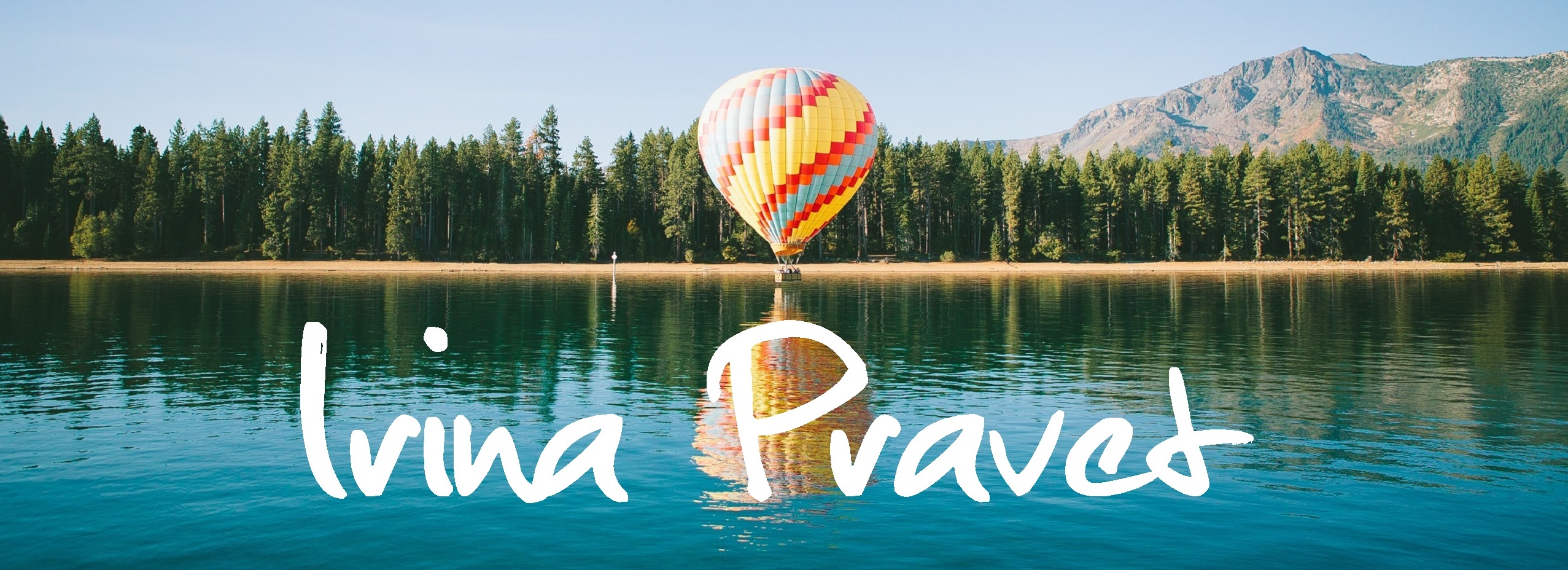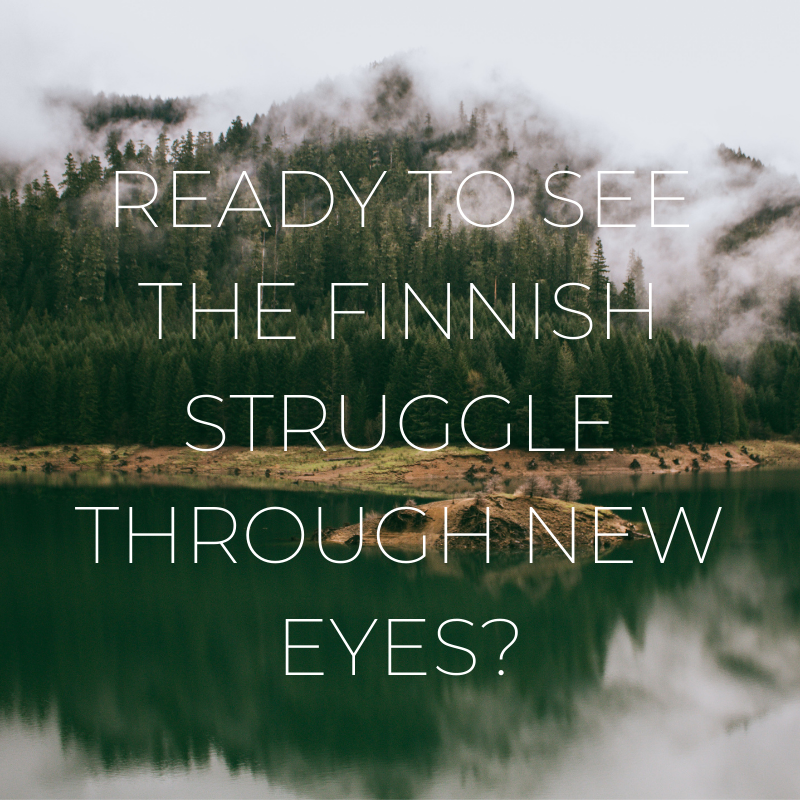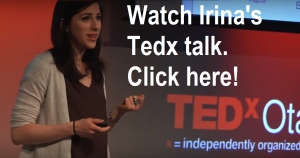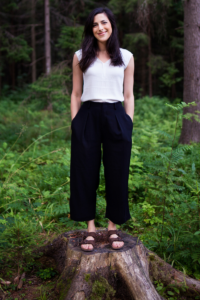 Back when I first started learning Finnish, I thought of it as an exciting, intellectual, almost artistic challenge. I wanted to express myself in Finnish. And I wondered about how I’d develop the ability to conjugate, inflect and live in Finnish!
Back when I first started learning Finnish, I thought of it as an exciting, intellectual, almost artistic challenge. I wanted to express myself in Finnish. And I wondered about how I’d develop the ability to conjugate, inflect and live in Finnish!
What I didn’t expect, was that I would learn a lot about myself on the way. I kind of just thought I’d learn Finnish. But as time went on, learning Finnish and learning about myself and the world became almost synonymous. Every challenge I was presented with required one of the following:
- a small shift — in the easier cases,
- a complete change of perspective — in other cases,
- and when push came to shove, complete surrender (which sometimes felt like giving up, but which was necessary to keep going)
So here’s a tidy list of a not-so-tidy process, and the things it taught me about myself and life along the way:
1. Humility
If nothing else, learning Finnish taught me to be humble. I used to think I was good at learning languages (this is what I’d been told my whole life, and what I’d seen myself succeed in). And I’ll be honest, this is one of the few areas in my life where I felt like “THIS! This language thing, I rock at this.”
This felt good for awhile, but when I met challenges I didn’t know how to solve, I felt secretly ashamed and embarrassed. What if I’m not good at this either? Luckily, life abroad has a way of serving up the same challenges over and over again so at some point you have to keep going instead of losing yourself in your head. I worked through the challenges and came to realize we all have the ability to learn languages. We really, really do.
It wasn’t so much my own ability that helped me learn as it was witnessing how amazing our brains are at adapting.
The initial belief of knowing I can learn might’ve spurred me on further than I would’ve gone otherwise, but once I got to a certain point, I had to keep going. It wasn’t so much my own ability that helped me learn as it was witnessing how amazing our brains are at adapting. We are all wired for language, and I cannot take credit for that. So yes, learning Finnish has definitely humbled me.
2. Self-efficacy & a growth mindset
On that same note, I would say my self-efficacy (my belief in my own ability to do something) has grown in all aspects of my life. I used to believe I was good at some things and not good at others, and that was just the way it was. But once I realized that I can do whatever I set my mind to, my belief in my ability to do things other than ie. language learning, shifted completely. I later learned this is also the difference between a fixed mindset and a growth mindset.
I used to believe I was good at some things and not good at others, and that was just the way it was. But once I realized that I can do whatever I set my mind to, my belief in my ability to do things other than ie. language learning, shifted completely.
With enough awareness, dedication and regular periods of taking steps back from things, I’ve managed to do lots of things — albeit slowly, by choosing to never give up. Sounds cliche but it works. I don’t give up the things that are truly important to me or need to get done one way or another.
An couple extreme examples: doing my accounting (the subject I came closest to failing in university) in Finnish — nothing seemed less appealing to me at the time. And insisting on reading all the contracts before signing our mortgage in Finnish — this latter one required copious amounts of questions during and napping after.
3. Laugh at myself
My first job in Finnish was coaching gymnastics to children. I would get any number of questions from the kids, such as “Why do you speak funny?” (though to be fair I only heard that one once), to blank stares or to my wonderful 5–6 year old girls who would correct me in choruses! Ultimately, my goal was to teach them gymnastics, not to speak perfectly… but who says you can’t have fun in the meantime?
Ultimately, my goal was to teach them gymnastics, not to speak perfectly… but who says you can’t have fun in the meantime?
There were so many times when I didn’t know a word or I knew the word started with a v- ended with an -i but couldn’t remember what went in between. Other times, I’d put my hands up and say “Jalat ylös!” (Feet up!) With my teenage girls, who were the last group of the day, I had a joke that after 8pm, I couldn’t speak properly anymore.
I think back fondly to these times as times where I could’ve given in to my inner critic, quit and run away, but instead, I’m so proud for showing up and trusting that I would figure it out. There is so much humour in the everyday; it really was a lot of fun! There was never really any need to take myself too seriously (even if I did sometimes), and I saw that this helped the kids see me as a fellow human too.
4. You can contribute without being perfect, right now
Building on the above, I noticed that although my Finnish was far from perfect, I was still able to contribute. My girls would laugh and smile, they would play and have fun, they would learn new things and run home to tell their parents about it. Where there days where I felt I could’ve done better? Sure, but overall, I started to notice that showing up and trusting that it was enough, was enough!
Over the years, I’ve heard so many people say how ONCE they speak Finnish, they’ll be able to do X, Y, Z. I also noticed this faulty assumption in the Finnish classroom and the subsidized courses: once you learn Finnish, then you’ll be able to contribute to society. I don’t believe this to be true. I actually believe this to be a very dangerous trap that can lead to a lot of social problems.
A smile is a contribution, holding the door is a contribution, witnessing or acknowledging someone is a contribution. I learned that I am enough in this moment, and so are you.
A smile is a contribution, holding the door is a contribution, witnessing or acknowledging someone is a contribution. I learned that I am enough in this moment, and so are you. Being yourself in Finnish is more of an attitude than anything else, and it starts with seeing yourself as already being enough, already able of contributing.
5. Being silence, more quiet
Silence has never come naturally to me. I was an only child who never missed a thing, had a lot of energy and, I am told, a very big mouth. My family and I might disagree on the details of these but we can agree that no one would’ve ever called me quiet.
So when I started meeting more Finns and noticing the empty spaces, the silences and pauses in conversation, it was exceptionally difficult for me to hold this empty space. Once I started speaking more Finnish though, this started to become more natural.
It’s easier to be silent in Finnish than in English
It’s easier to be silent in Finnish than in English but even now, when I visit Toronto and speak with people, I notice myself comfortable in silence (or yearning for it when it isn’t there). I don’t think of myself as (over-the-top) loud anymore, nor so I think of myself as incapable of silence. Now I’m actually working on being a bit more vocal to strike the balance between the two extremes.
6. Setting boundaries
I would say the concept of boundaries had long evaded me before moving to Finland, and I wouldn’t say that learning Finnish helped me set boundaries. Rather, I interacted with so many Finns who were so skilled at setting boundaries, that quite frankly, this drove me a little insane in the beginning (I use the term beginning loosely).
I have now come to believe that setting boundaries while speaking Finnish comes much more naturally than while speaking English.
I have now come to believe that setting boundaries while speaking Finnish comes much more naturally than while speaking English. I’ll give you an example.
I was at sitting on the grass in a siirtolapuutarha (a garden that’s made up of separate plots that people rent and maintain). With the sun shinning brightly on my face, I was soaking up all the warm rays and getting my vitamin D fix! My eyes were closed and I was meditating. Then I heard a man’s voice, asking me if I wanted to play frisbee. I opened my eyes, looked around confused and asked if he was speaking to me. Yeah, he said, do you want to play frisbee?
Ei, kiitos. No, thank you.
Ootko varma? Are you sure?
Joo. Mutta kiitos. Yeah, but thank you.
Reflecting on that exchange later, I realized I’d become a completely different person at some point. Had that exchange taken place in English, I would’ve felt compelled to explain why, make an excuse, thank him profusely, feel guilty, etc. But in Finnish, I felt the kindest thing to do was to be honest, and thank him genuinely. Pretty cool trick, right?
7. Developing multiple perspectives
Having been born in Romania and growing up in Canada, I was no stranger to plural cultural perspectives when I first got to Finland. But despite this, whatever overlap there was between Canadian and Romanian culture seemed to fly below my radar.
I also considered some stuff ‘common sense’, while other things could be chalked up to ‘unusual’ behaviour. HA! If there’s anything I’ve learned, it’s that we need to very seriously question what is considered common sense.
If there’s anything I’ve learned, it’s that we need to very seriously question what is considered common sense.
It’s much easier to think about the intentions in a context than it is to consider the actions themselves. Because while I felt that a lot of people’s behaviour stepped outside the realm of common sense, I am equally certain that people saw (maybe still see!) my behaviour as lacking in common sense. This is what we humans do, and no, I was not immune.
This is by far the most difficult thing to explain to someone who has not had to adapt to a new culture: there is no such thing as common sense. ‘Sense’ is a perception we built up within our own contexts, and then took out into the world where it rubbed up against perceptions that were formed in other contexts (even if that person is our neighbour!).
Ultimately, I learned that the easiest way to release attachment of my cultural perceptions, or even to make room to hold contradictory perceptions, is through language.
Ultimately, I learned that the easiest way to release attachment of my cultural perceptions, or even to make room to hold contradictory perceptions, is through language. It was really difficult for me to understand the Finnish perspective through English because for me, the English perspective (specifically the Canadian English one) was present when I spoke English — and with it came a whole bunch of assumptions and expected behaviours.
Whereas when learning Finnish, my mind and heart were more malleable and open to interpretations and possibility. Learning a language is a mental gymnastics exercise, stretching the limits of our perceptions!
What about you: what has learning the language of the place you live taught you about yourself and world?

My name’s Irina and I was born in Romania, grew up in Canada and moved to Finland in 2010. From a young age, I had to learn languages to adapt to the big transitions going on in life (from Romanian to French to English). I gradually became fascinated by each language’s ability to help shape my identity and reveal new (sometimes contradictory) perspectives about the world. Based on my experience abroad since 1993, I weave together experiences to empower foreigners to create lives they love abroad, whether the current challenges are related to language, culture or to a greater personal transition. You can find more posts like this one and follow my work at irinapravet.com



